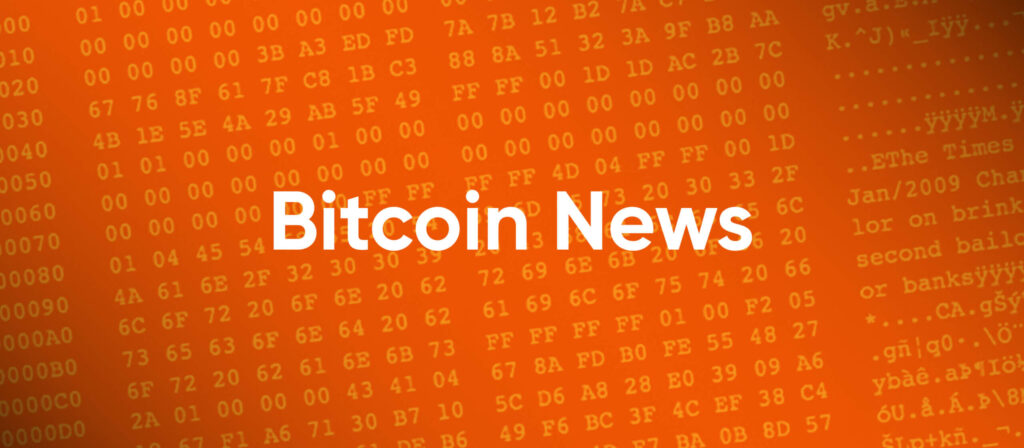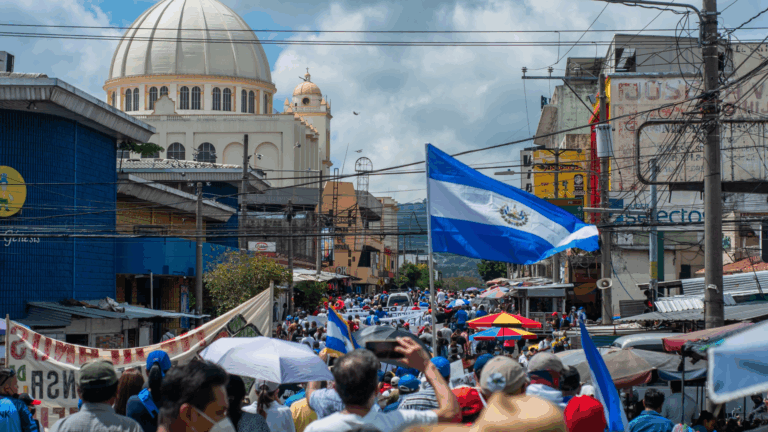The Financial Freedom Report is a newsletter focusing on the role currency and banking play in the civil liberties and human rights struggles of those living under authoritarian regimes. We also spotlight new tools and applications that can help individuals protect their financial freedom.
Good morning, readers,
This week’s news is led by the headline that SWIFT — the global messaging system for banks — is developing a central bank digital currency platform to facilitate the interoperability of CBDCs across the globe, most of which are being issued by authoritarian governments.
In Iran, a new report dives deep into Bitcoin adoption, showing that even (or perhaps especially) in a country with major political repression, Bitcoin continues to act as a tool of financial liberation.
On the open-source front, Fedi, a community-powered Bitcoin app built on federated custody, introduced new features enabling users to transact with ecash based on actual Bitcoin.
In Kenya, we highlight the amazing work of Bitcoin DADA, a nonprofit initiative aimed at educating and empowering African women through Bitcoin, and in our content section, we feature a fresh fireside conversation between the Human Rights Foundation’s (HRF) Financial Freedom Associate, Arsh Molu, and Roya Mahboob, CEO and co-founder of the Digital Citizen Fund, on how she funds underground schools in Afghanistan with Bitcoin.
Let’s get started!

Iran | Currency Plunges to Historic Low
Iran’s currency, the rial, reached a historic low, trading for 613,500 rials to the dollar. This depreciation comes during a 46% inflation rate that has seen the value of the rial fall 20x against the dollar since 2015. Amid these challenges, Iranian writer Marius Farashi Tasooji indicates in a detailed new report that a growing number of Iranians are adopting Bitcoin. His analysis suggests that approximately 25% of Iranians have turned to cryptocurrency, with Bitcoin being the most popular choice. In the context of a currency crisis and tyrannical restrictions, Bitcoin enables Iranians to protect their savings from inflation, overcome government censorship, receive their salaries, minimize their tax burdens, and participate in the global economy. “Iranians are heavily involved in Bitcoin because we have the weakest economy in history,” one interviewee said. These stories and data emphasize Bitcoin’s role as a financial lifeline for people living in some of the most repressive places on earth.
SWIFT | Plans to Launch CBDC Platform
The Society for Worldwide Interbank Financial Telecommunication (SWIFT), a global messaging system for banks and financial institutions, has announced it’s building a global central bank digital currency platform. The system aims to enable interoperability between various CBDCs, regardless of underlying technology. SWIFT has targeted a 12 to 24-month timeline for launching this global platform. By establishing a direct link between citizens and central banks, CBDCs open the door to potential financial freedom violations, such as the freezing of bank accounts or transaction censorship. According to HRF’s central bank digital currency (CBDC) tracker, more than 120 out of 193 governments worldwide are exploring, building, or have already launched CBDCs, and most of those governments are authoritarian. The most advanced CBDC projects have been rolled out under regimes in China and Nigeria. To learn more, visit HRF.org/cbdctracker.
Togo | Constitutional Change Weakens Electoral Processes
In Togo, recent constitutional amendments have altered presidential terms from two five-year terms to a single six-year term, lengthening the President Faure Gnassingbe’s tenure by a year while limiting the length of future presidents’ tenures. The new constitution also transitions Togo from a presidential to a parliamentary system, giving parliament the undisputed power to elect the president rather than the general public. These changes are expected to prolong Gnassingbe’s 19-year rule and potentially extend his governance until 2031, assuming he’s re-elected by parliament (in what is predicted to be a rigged election) in 2025. “A staggering 97 percent of the country’s citizens have lived under the shadow of a single ruling dynasty,” Togolese democracy activist Farida Nabourema said. “The Gnassingbés do not just run elections; they are the elections.” She has long been an outspoken critic of the monarch, fighting against Africa’s longest-standing dictatorship since the age of 13. The Gnassingbé regime uses financial repression as a standard tactic to enforce its rule, freezing the bank accounts of anyone who dares protest, organize, or speak out against it.
Israel and Palestine | Threat of Banking Isolation
Financial freedoms of West Bank Palestinians are already very weak, as they suffer under the rule of authoritarian leader Mahmoud Abbas. A new risk comes from outside, as Israeli finance minister Bezalel Smotrich announced plans to sever ties between Israeli banks and Palestinian banks in the West Bank, potentially isolating Palestinian accounts from the global banking system. Since the West Bank’s economy uses the Israeli currency, the shekel, individuals living there are reliant on the Israeli government for their financial connection with the world. Smotrich’s decision would halt the ability of Israeli companies to process Palestinian checks and payments, while West Bank workers will not be able to receive wages unless paid in cash. Furthermore, Palestinian import and export operations as well as tax funds — all of which go through Israeli ports and institutions — will be affected. Unless Israeli Prime Minister Benjamin Netanyahu repeals the decision made by Smotrich, financial flows and citizen livelihoods in Palestine are at risk, highlighting the need for independent and neutral monetary rails that can remain functional for an economy and its citizens even amid geopolitical tensions.
South Sudan | Crackdown on Forex to Stabilize Currency
To stabilize its rapidly depreciating currency, the pound, South Sudan is cracking down on unlicensed forex dealers in the capital city of Juba. The pound has fallen sharply in value, from 1,000 pounds to the dollar earlier this year to 1,600 pounds to the dollar this week (with weaker rates observed on the black market). “Anybody selling dollars either on the streets or in their houses or in their shops or any corner anywhere will be asked by law enforcement, if you are selling, show me your license,” James Alic Garang, governor of the Bank of South, said. This crackdown on forex dealers, which encompasses a large group of people in search of stronger monetary technology, comes amid soaring prices of basic goods that have tripled in the African country while government revenues have plummeted following a ruptured oil pipeline. As Sudan’s currency crisis intensifies, officials have moved to reduce the exit ramps, leaving their citizens to bear the cost of the rapidly depreciating currency.

FTX | 25-year Jail Term for SBF
Cryptocurrency mogul turned con artist, Sam Bankman-Fried (SBF), has been convicted of defrauding investors and customers of $8 billion and sentenced to 25 years in prison in the United States. The founder of FTX, once a leading cryptocurrency exchange, faced charges on seven counts of fraud and conspiracy, marking one of the largest financial crimes in US history. Judge Lewis Kaplan handed out the sentence by saying, “He knew it was wrong; he knew it was criminal. He regrets that he made a very bad bet about the likelihood of getting caught. But he is not going to admit a thing, as is his right.” Kaplan added that SBF aimed to portray himself as a “good guy” to amass “power and influence.” The damage caused by the failure of FTX was significant and underscored the substantial risks associated with custodial wallets and centralized exchanges. The FTX saga highlights the importance of self-custody to maintain safe and secure ownership over one’s Bitcoin.
Casa | Introduces Casa Inheritance
Self-custody Bitcoin wallet Casa introduced a solution designed to help clients with Bitcoin inheritance planning through its new Casa Inheritance service. This new offering uses multisignature vaults and employs multiple keys with distributed custody to ensure the secure recovery of Bitcoin assets should anything happen to the user. When establishing the vault, users will designate a trusted recipient by sharing an encrypted mobile key with them. In the event of death, the key grants the recipient access to the Bitcoin vault, subject to a six-month waiting period for additional security. Casa Inheritance is available worldwide and is a KYC-free option for inheritance planning. This particular feature might come in handy for activists in difficult political environments, who may not necessarily experience a death but perhaps a detention on political grounds.
Fedi | Releases Fedi Bravo
Fedi, the first fedimint mobile wallet, released Fedi Bravo, which gives users the ability to now send and receive funds with friends using ecash based on real Bitcoin. Fedi offers community-based Bitcoin custody with strong backup and recovery features that help communities store and transact Bitcoin together in what is known as a “fedimint.” Fedimints, short for federated Chaumian mints, are a novel approach to Bitcoin custody where trusted members of a community, known as guardians, collectively manage the security of the funds and the federation as a whole. Within a fedimint, users can transact using Bitcoin with strong privacy and minimal costs. Fedi might be an appealing tool for non-profits with trusted communities, allowing individual members to transact with extremely strong privacy guarantees.
Hedgehog | New Layer Two for Asynchronous Payments
A new layer two protocol for Bitcoin called “Hedgehog” proposed a novel approach to asynchronous payments, enabling one party to send money to another while the second party is offline. This is partially in reaction to a weakness of Lightning, where self-custodial mobile app users cannot currently receive payments if they are offline. Created by developer Super Testnet, Hedgehog’s approach to payment channels is simplified, where state updates to Hedgehog channels only require a proposal from the sender, which the recipient can accept at their convenience. This flexibility enhances the efficiency of payment processing on the protocol. While still in the concept phase, Hedgehog is a testament to the ongoing innovation of Bitcoin, where developers are constantly thinking about how to make payments more accessible and user-friendly.
Zeus | New Update Available for Beta Testing
The self-custodial Lightning wallet, Zeus, has released its update v0.8.3, now available for beta testing worldwide. The update includes on-chain transaction coin control, allowing users granular control over the specific inputs and outputs in their on-chain transactions, a crucial tool for activists concerned with privacy. The update also introduces Signet support, enabling users to interact with test applications on the Bitcoin test network directly from the Zeus wallet. By offering strong self-custody options and integration with the Lightning Network, Zeus provides a handy mobile tool for users to leverage Bitcoin as a medium of exchange while still retaining full control over their funds. HRF is happy to see the continued growth of Zeus, which was the second-ever recipient of a Bitcoin Development Fund grant.
Bitcoin Events | Latin America, Africa, Europe, and North America
As Bitcoin adoption continues to rise, educational events are emerging worldwide. On April 9th, the Bitcoin Policy Institute will convene for its annual summit in Washington, D.C., “where policymakers, academics, and industry leaders discuss the opportunities and challenges presented by digital currencies.” Members of HRF’s Financial Freedom Team, including Arsh Molu and Anna Chekhovich, will be speaking at the summit on the human rights track. HRF will also be speaking at CheatCode in Bedford, United Kingdom, on April 12-13, as well as at the Bitcoin 2024 conference on July 25-27 in Nashville, Tenn. Later in the year, HRF will be participating in SatsConf, taking place in São Paolo, Brazil, on November 8-9, as well as the Africa Bitcoin Conference, taking place in Nairobi in December.
Oslo Freedom Forum | Reserve Your Spot
Human rights advocates from around the globe will take the Oslo Konserthus stage on June 3-5, 2024, to share their efforts to defy repression and speak out against injustice. This year’s theme, Reclaim Democracy, emphasizes the pivotal role every individual plays within the global movement for democracy. The Financial Freedom team is looking forward to creating a program track exploring the role open-source money plays in preserving our human rights and civil liberties. Use the code 2024OFF to get an early bird discount on your ticket.
If this email was forwarded to you and you enjoyed reading it, please consider subscribing to the Financial Freedom Report here.
Support the newsletter by donating bitcoin to HRF’s Financial Freedom program via BTCPay.
Want to contribute to the newsletter? Submit tips, stories, news, and ideas by emailing [email protected].
Purchase your ticket to the 2024 Oslo Freedom Forum, taking place June 3-5 in Oslo, Norway. Use the code 2024OFF to get an early bird discount.
The Bitcoin Development Fund (BDF) is accepting grant proposals on an ongoing basis. The Bitcoin Development Fund is looking to support Bitcoin developers, community builders, and educators. Submit proposals here.









